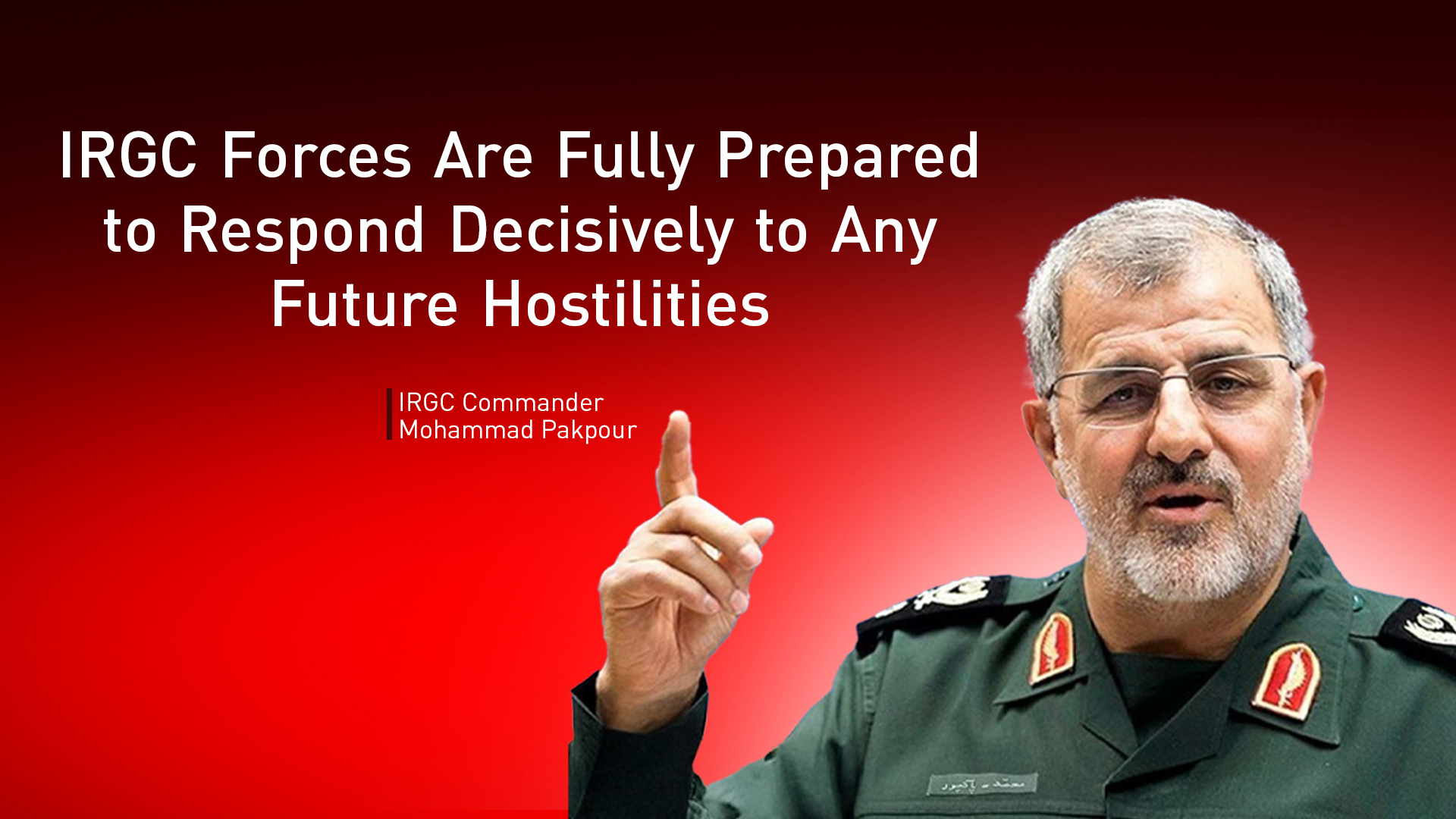Iran Vows 'Harsher' Retaliation for Any New Israeli Aggression
Iran's IRGC has warned Israel of a 'crushing' response to any new aggression, harsher than the recent 12-day war. The defense minister added that Iran is prepared to deploy new, unused advanced weaponry in any future conflict, citing domestic production and lessons learned.

ERBIL (Kurdistan24) – A top commander of Iran’s Islamic Revolution Guards Corps has warned that any new act of aggression by Israel will be met with a response "more crushing" than the recent "12-day war," according to a report from Iran's IRGC-affiliated Tasnim News Agency. The stark warning signals Tehran's continued high-stakes posturing following the significant direct military confrontation between the two regional adversaries in June.
In a meeting on Saturday with the head of the Judiciary Organization of the Iranian Armed Forces, Major General Mohammad Pakpour, Commander of the ground forces of Iran's Islamic Revolutionary Guard Corps, stated that IRGC forces are fully prepared to respond decisively to any future hostilities.
According to the Tasnim report, he warned that if the "Zionist regime" dares to repeat an act of aggression against Iran, it will face a response more severe than what it sustained during the 12-day conflict and will be left with "deep regret."
The Tasnim report contextualized the commander's remarks by outlining the timeline of the June conflict. It stated that on June 13, the "Zionist regime launched an unprovoked war of aggression against Iran, targeting military, nuclear, and residential areas for 12 consecutive days." The report noted that the United States later escalated the conflict on June 22 by striking three of Iran’s nuclear sites in Natanz, Fordow, and Isfahan.
In response, Iran’s Armed Forces delivered what was described as an "immediate and forceful response".
The IRGC Aerospace Force carried out 22 waves of retaliatory missile strikes under "Operation True Promise III," which Tasnim said inflicted significant damage and heavy losses on cities across the "occupied territories."
Iranian forces also retaliated for the US attacks by targeting al-Udeid Air Base in Qatar, described as the largest American military installation in West Asia, with a barrage of missiles. A ceasefire was enforced on June 24, bringing the confrontation to an end.
These threats from the IRGC align with recent statements from Iran’s Minister of Defense, Brigadier General Aziz Nasirzadeh, who declared that any future aggression would be met with the deployment of new, unused weaponry. In a special news interview broadcast Friday night and reported by the Young Journalists Club (YJC), Nasirzadeh said, "If Israel dares to transgress again, we will use new military equipment."
He emphasized that this stance was a necessity for national survival, stating, "If we show weakness, the enemies will become bolder and act more aggressively."
According to the YJC report, the defense minister detailed specific advanced military capabilities that were withheld during the June war. He confirmed that the "Qasem-e Basir" missile, described as Iran’s "most accurate precision-strike missile," was not used.
Nasirzadeh explained that this missile incorporates new technology resistant to electronic warfare. He also mentioned a new generation of missiles, tested over the past year, that feature advanced warheads with maneuverability upon entering the atmosphere, allowing them to evade enemy air defense systems. "We have not yet used these missile technologies in the twelve-day war," he stated.
Nasirzadeh also offered an assessment of the conflict, suggesting to the YJC program that Israel's defensive capacity was degrading as the war progressed. "If the twelve-day war had reached fifteen days, in those final three days, the enemy might not have been able to defend against any missile," he claimed, asserting that continuing the war was "definitely to their disadvantage," which led them to "request a ceasefire."
The defense minister stressed Iran's industrial self-sufficiency, telling YJC that missile construction is "one hundred percent produced domestically" with "no reliance on foreign sources whatsoever." He also characterized the conflict as a "very complex and strange" hybrid war, citing a cyberattack on Bank Sepah timed to disrupt salary payments to armed forces personnel alongside direct military attacks. To ensure resilience, Nasirzadeh explained that the ministry collaborates with over 8,000 private companies, ensuring that "when one of our infrastructures is targeted, our production continues."
The 12-day war, fought from June 13 to June 24, 2025, was the most significant direct military confrontation between Iran and Israel to date. The conflict began when Israel launched a surprise operation targeting Iranian nuclear facilities, missile bases, and military command centers.
Iran responded with waves of missile and drone attacks on Israeli cities. The United States joined the conflict on June 22 with airstrikes on Iran’s main nuclear sites, and Iran retaliated the following day by launching missiles at a U.S. military base in Qatar.
According to official figures cited from HRANA, the Israeli strikes killed 1,190 people and wounded over 4,000 in Iran, while Israel reported around 28 killed and over 3,000 wounded. The brief but destructive conflict left significant damage to Iran’s military and nuclear infrastructure.